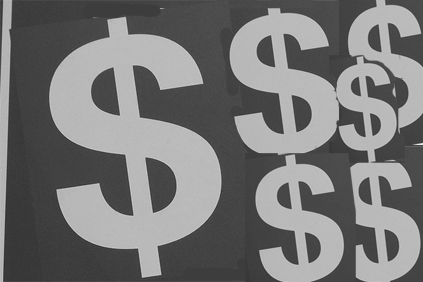"Tax equity, I think, is one of the biggest challenges that we have as an industry. It is highly illiquid and expensive, and I think the sooner we can avail ourselves of some cheaper, deeper sources of capital, the better off we'll be," Paul Gaynor, CEO of Boston-based First Wind told the recent Infocast Wind Power Finance and Investment Summit in San Diego.
The US industry's main support mechanism is the $0.022/kWh production tax credit (PTC), paid on the first ten years of a project's output. The challenge is that most project developers have insufficient taxable income to use it or the other federal tax write-offs wind projects receive, forcing them to go out and find investors who can.
But the money those so-called tax equity investors expect in return, industry players complain, is out of step with other sources of capital.
Current tax equity returns are in the 8% after-tax range, Infocast delegates heard. "That is the equivalent of 13% pre-tax," said Joseph Slamm, partner of the private equity firm Hudson Clean Energy Partners.
"That is a 400 or 500 basis points (0.4%-0.5%) higher cost of funds than anywhere else in the world."
One factor in the cost of tax equity is the limited number of players in the market.
"It's a supply demand issue," said Kevin Walsh, managing director of power and renewable energy at GE Energy Financial Services, a tax equity provider.
"We do think we may be able to corral some new investors in the space. We take credit for bringing Google to the table two years ago, and we are working on others like them."
However, Gaynor does not expect a great deal of interest. The wind industry had been hoping Google's entry would draw other cash-rich Silicon Valley companies such as Apple or Microsoft into the market, he said, but that hasn't happened. The highly complex deal structures that are necessary to incorporate tax equity into project financings are a hurdle, especially given uncertainty over whether the PTC will even be in place beyond its scheduled expiry at the end of this year.
"Not that this is going to happen, but if there was a permanent PTC, I think you'd see floods of money coming in. That's the problem. There's no duration to the investment."
The complicated tax structures also act as a deterrent to other providers of capital that might otherwise be interested in the sector, said David Zwillinger, vice-president of private equity firm DE Shaw & Co.
"Unfortunately, it is restricting a huge pool of investors," he said. "You would open up the market massively more if you looked like every other industry."
Accessing that broader investor pool will be key to the industry's growth, delegates heard, especially as it tries to compete in an era of low natural gas prices and flat power demand.
"If you really want to unlock the investment into renewables, we've got to be able to bring in lower-cost capital. Reducing some of the barriers that are inherent with tax equity structures would really help the industry," said Ty Daul, CEO of Element Power's North American operations.
Gaynor said he sees master limited partnerships (MLPs), an investment vehicle used widely by pipeline and other energy-related companies, as a viable alternative if the industry can win the legislative changes needed to allow wind projects to use them. MLPs raised $22 billion of equity last year from stock market investors at yields of 7% or below.
"It is a cheap, deep source of capital," he said. "I do think it could be a real, practical, winning solution for industry on a long-term basis."
Other industry players are exploring options such as publicly traded real-estate investment trusts (REITs), and Yieldcos, a type of corporation that would own operating wind energy projects and pay dividends to individual and institutional investors who buy shares.
Whatever the vehicle, said Slamm, the industry will be better off outside the tax equity framework.
"A systematic phase-out of the PTC is the way to go," he said.
"What replaces it will not only potentially be MLPs, but really any capital market structure that's available in the world."

.png)



.png)









